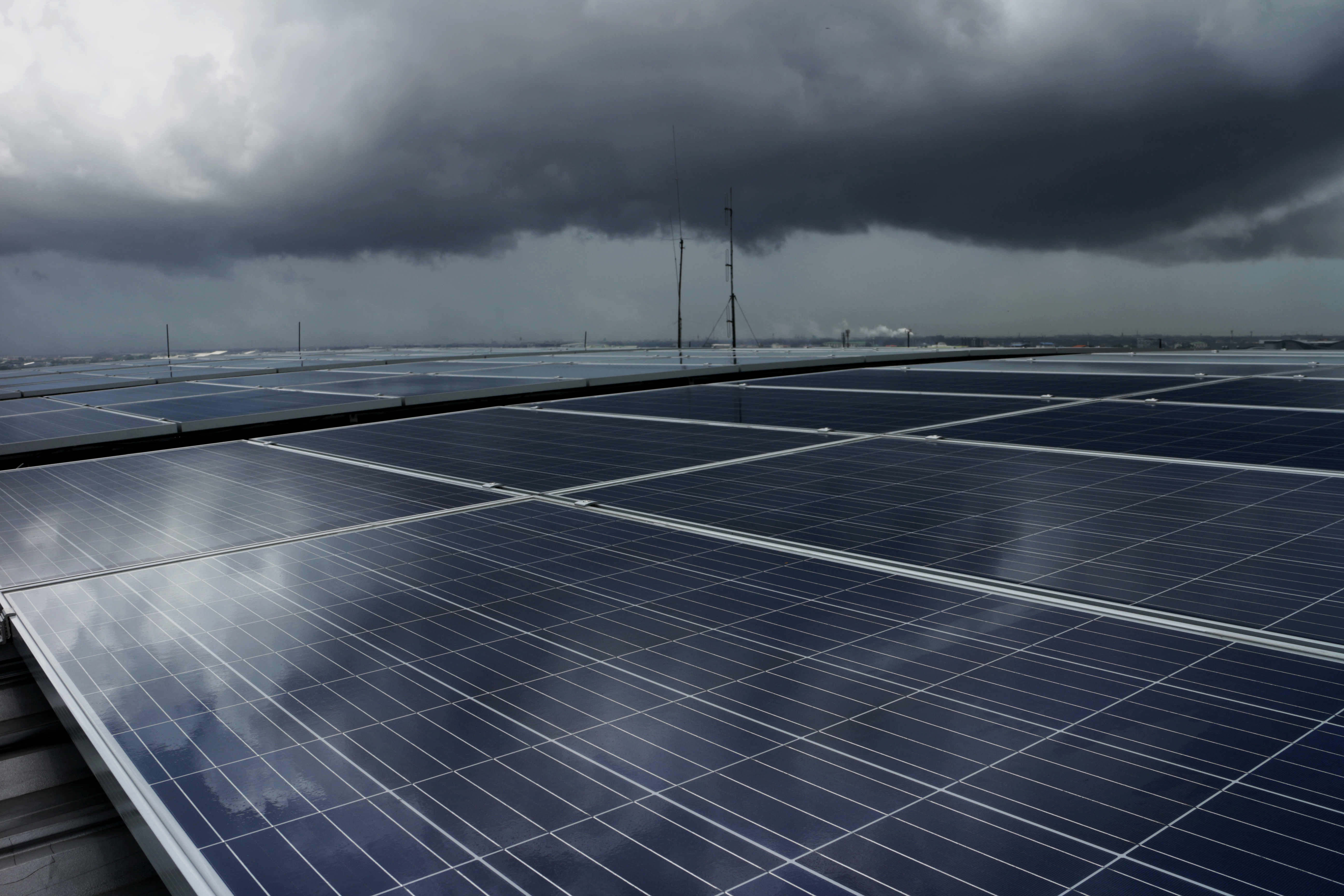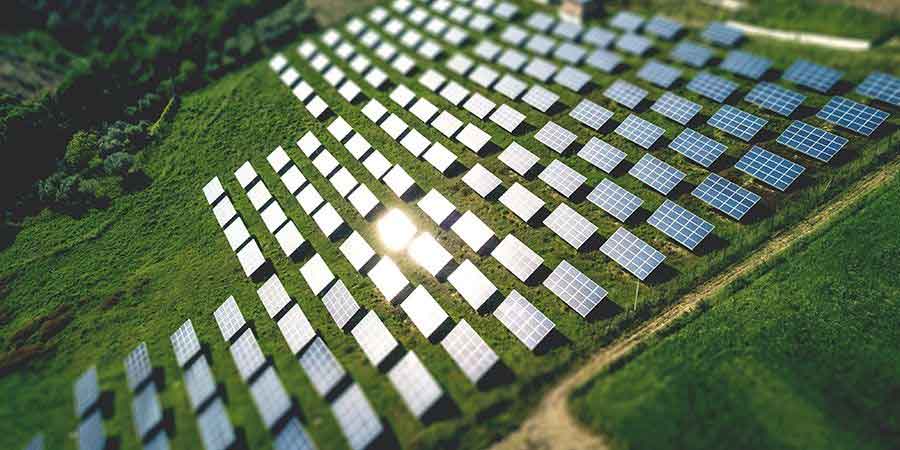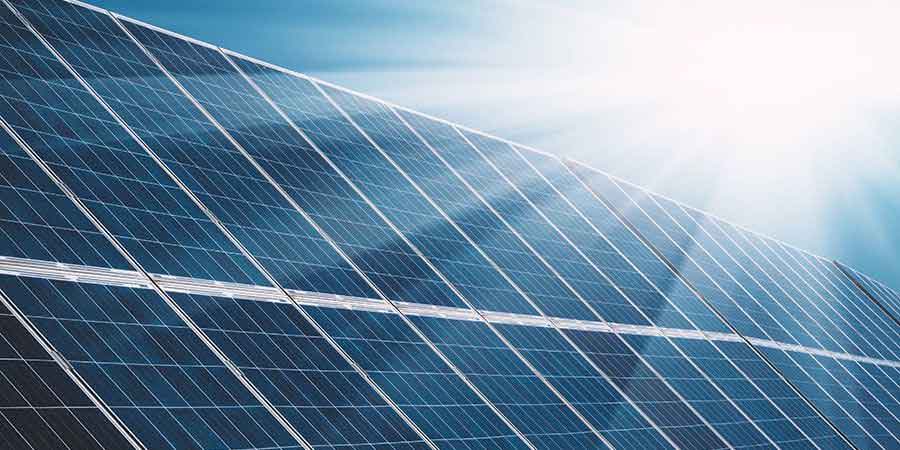The Challenges of Home Solar Storage
The Solar Storage Problems for Rooftop Solar
One of the main draws of installing home rooftop solar panels is the idea of complete energy independence. People often think that putting solar panels on their roof will essentially allow them to go “off-grid” and possibly save around $1,345 per year, or the average annual electric bill in the U.S. Many shoppers tend to forget, however, that getting the most out of a rooftop solar system or going completely off-grid will require an energy storage solution like solar storage batteries.
Why Consider an Energy Storage Battery?
If you are considering a rooftop solar system, it is important to know that solar production ebbs and flows with the seasons. Of course, the sun doesn’t shine at night, and a week of cloudy days could certainly reduce the amount of energy available to a household. You should also install your solar panels facing south to get the optimal amount of sunlight.
Energy storage batteries are designed to allow homeowners with rooftop solar systems to store any excess energy produced by their PV panels in their solar batteries. You store excess energy instead of sending it back to the grid. They should help make up for solar production gaps, however your panels must be producing excess in order to send it to the batteries in the first place, so it is critical that your system performs well in order for storage to be effective.
Solar panels have the ability to produce about 25% of their power in less optimal conditions, such as a cloudy day. Only when conditions are optimal will they produce a surplus. If you do not have solar storage (a battery) connected to your home, the surplus is sent back into the local power grid.

Solar Storage Challenges
Despite the fact that recent developments in battery storage technology have been promoted with great fanfare, there are still a number of solar energy storage challenges.

The Cost
First and foremost, batteries for storing solar energy are expensive. Prices for solar batteries range from $5,000-7,000. The price tag, however, may or may not include the necessary installation and mounting equipment. Your home many also require more than one solar battery, depending on a home’s kWh of energy used per day.
The Batteries Won't Pay for Themselves
An investment in solar panels may pay for itself over their lifetime depending on the size of your home, how much energy you use, and other factors. However, the same cannot be said for solar battery storage. Let’s imagine an example where a household purchases two solar batteries for a total cost (including installation) of $15,000. The average household in the United States uses an average of 867 kWh of electricity per month, or around 29 kWh per day. The solar batteries you have purchased will only be save electricity during evening hours if they have enough charge. For argument’s sake, let’s say that your solar batteries will save you roughly 15 kWh of electricity on a daily basis, or 5,475 kWh per year.
The average price of electricity in the United States currently stands at $0.12 per kWh. Each year, then, solar batteries could potentially save you $657. Common solar battery warranties however, only last about 10 years. By the time the warranty is up, you will have saved about $6,500 dollars, while your initial investment was well over $15,000.
Battery Storage Isn’t The Only Way To Save On Electricity Costs During Off Hours
Another common justification for the investment in solar battery storage is that you save money by not having to tap into your municipal electricity supply. However, households that have solar panel systems that are connected to the grid can also benefit from feed-in tariffs in many states. This is also referred to as Net Metering. In California, for example, offers a $0.12 feed-in tariff, meaning that homeowners can sell the excess energy generated by their solar panels back to the grid, thus offsetting some (if not all) of the costs of the energy they purchase from the grid during the nighttime hours when their panels are not generating electricity.

Extra Costs for Blackout Protection
In some cases, homeowners with rooftop solar panels might be interested in purchasing a solar battery system for protection during blackouts. No one enjoys being without power, and batteries are often billed as a way to avoid being stuck without power. What few people realize, however, is that you will need to invest in extra electronics and engineering for blackout protection for a grid-tied solar panel system. These costs will include engineering that will isolate the house from the electric grid, electronics to safeguard that the battery system is not overloaded from the solar panels or the house load, and the need to balance generation and loads for supply and demand. Simply put, all of this will cost a fair amount of money.
Do Rooftop Solar Investments Still Make Sense?
There are cases where rooftop solar panels do make sense, but there are many costs associated with rooftop solar that are often not obvious to homeowners when they start the process of this long-term investment. Batteries might be effective if you plan to live totally off-grid, but as demonstrated above, they do not necessarily equate to a cost savings. So how else can homeowners invest in clean, renewable energy?
Alternative Solar Energy Solutions
Solar battery technology is still fairly new. While huge strides have been made on generating and storing power from sustainable sources, the prospect of living off the grid is still not a widely accessible option for most homeowners. Offsetting electricity costs through solar energy however, is still something that is accessible to homeowners and renters alike, with programs like Community Solar.
Community Solar projects, like those supported by Clearway Community Solar, deliver solar power to power grids and help to lower their load from fossil fuel energy sources. Homeowners and renters alike can join their local Community Solar Farm and by doing so not only offset their electricity costs, but also lower their carbon footprint. Community Solar delivers all of the benefits of solar energy without the overhead of solar panels and solar storage. You can learn more about how Community Solar works by clicking here.



